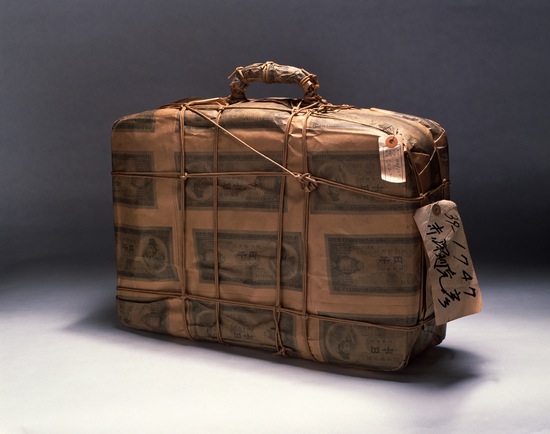People
Genpei Akasegawa, Artist and Convicted Forger, Dead at 77


Zoe Li


Genpei Akasegawa
Via: Designboom
Well-known avant-garde Japanese artist and writer Genpei Akasegawa died in a Tokyo hospital on Sunday Morning. According to NHK, the 77-year-old artist had been hospitalized repeatedly while battling illness for about two years. The cause of death was blood poisoning.
Born Katsuhiko Akasegawa in Yokohama, the artist was a member of the art collectives Neo Dadaism Organisers and Hi-Red Center and was an integral part of the radical anti-art movement of the 1950s and ’60s.
But Akasegawa didn’t become widely recognized in Japan until what’s become known as the 1000-yen Note Incident. The artist had printed several hundred single-sided images that resembled 1000-yen bills in 1963. He mailed them in the Japanese post office’s cash envelopes as invitations to his Tokyo exhibition at the time.
In the following months, the artist created more of the mock currency, burning some in performances and using others to wrap objects.

Genpei Akasegawa wrapped objects in fake currency.
Via: keithwhittle.org
It wasn’t until the following year, when the police launched a criminal investigation against Akasegawa, that the public began to notice. A highly publicized trial eventually found Akasegawa guilty of counterfeiting currency, although the bills were obviously unusable. Despite two appeals the artist served several months in jail.
The artist was also one of the creators, along with the eccentric Japanese architect Terunobu Fujimori, of the Roadway Observation Society. Established in 1986, the members of ROJO (as the collective was also known) took urban walks, cameras in hand, to seek out odd, mysterious, and out-of-place things that collectively formed the city’s unconscious.
Simultaneous with his art practice, Akasegawa carried on a successful writing career and in 1981 won the prestigious Akutagawa literary prize for his short story “My Father has Disappeared.”